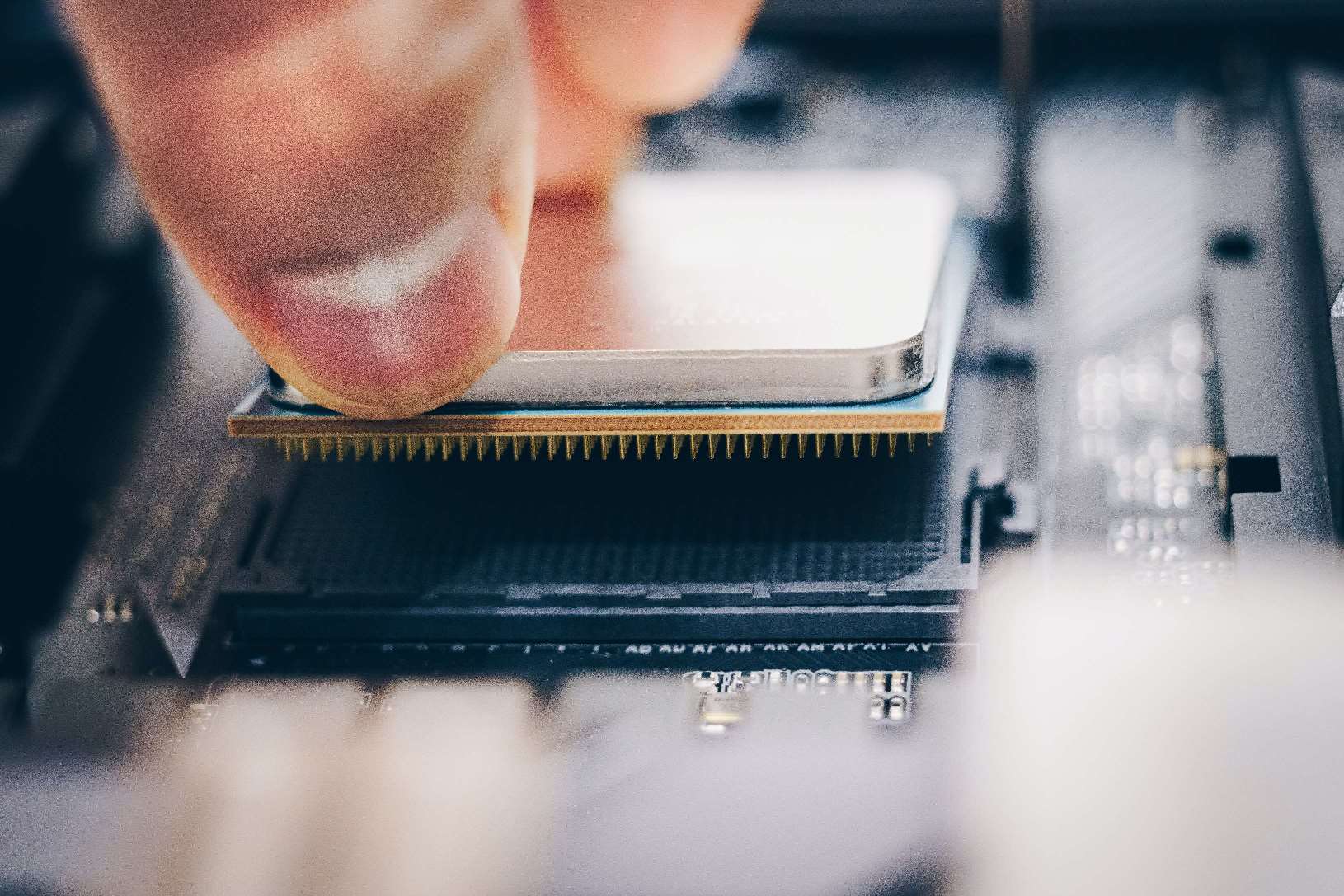Processor speed affects how fast your laptop can turn on and perform basic tasks or operations.
If your laptop has a powerful processor, it can boot up fast for immediate use. On the contrary, if your laptop’s processor speed is slow, it can take several minutes to load or even fail to start up.
The processor is also known as CPU, a vital computer hardware component that allows your PC to interact with installed programs and applications. It interprets program instructions and creates the output displayed on your laptop screen.
Your computer processor works with other hardware parts to provide information and complete input requests (tasks) whenever you make changes to a file or open an app. The processor, including its cores and clock speed, affects computer performance (slow or fast) and thus your (user) experience.
What is Processor Speed?
Various factors, including the speed of a computer processor, affect the performance of your laptop. A processor that works properly improves the functionality and longevity of your PC because it’s the brain of your laptop.
The processor cores and clock speed affect the speed of your computer processor. The clock speed of your processor determines how fast the central processing unit (CPU) obtains and interprets instructions, enabling your laptop to perform faster and finish more tasks.
The clock speed of your laptop is measured in GHz – the larger the value, the faster the clock speed of your processor.
On the other hand, the processor core is one processing unit within the CPU. It works with the clock speed to process information fast upon receiving instructions from one input computing task. The core stores processed information in the RAM (temporarily) and the hard drive (permanent storage).
How Many GHz is Good for a Laptop?
Your laptop’s speed is measured in GHz. A GHz (one billion hertz) measures frequencies one billion times in every second. The higher the GHz, the faster your computer’s processor. The right GHz for your laptop depends on how you intend to use it.
The right GHz for your laptop depends on your budget and unique needs. A 2.4 GHz processor is ideal for performing simple tasks, such as checking email and browsing the web.
However, you need at least a 3 GHz processor for more demanding computing tasks, such as gaming, video editing, or multimedia use (PowerPoint presentations). The more your computer’s processor gigahertz, the higher its price.
What Does a 2.4 GHz Processor Mean?
A hertz (Hz) means per second (the number of clock periods), while Giga (G) indicates a billion. Therefore, a 2.4 GHz processor runs 2.4 billion times per second to complete a timer cycle. This processing speed is less powerful than processors rated 3 GHz and above.
When buying a laptop, you must consider its processor speed based on your intended use, needs, and available budget. A faster processor delivers high computing performance.
How Fast is a 2.4 GHz Processor, and is it Good for a Laptop?

The clock speed, in gigahertz (GHz), is a measure of how quickly your laptop’s processor executes task instructions. A 2.4 GHz processor has at least two cores – the higher the number of cores, the better the computer performance.
The cache size, and memory space that the processor can access for quick temporary data storage, is also important consideration when buying a laptop.
With most laptops today built with powerful processors, the clock speed of a 2.4 GHz processor is on the lower side. You need a high processor clock speed for the best computing performance.
However, a 2.4 GHz processor speed is just fine if you need a budget-friendly laptop with average performance for light tasks. When used effectively for the right tasks, this processor can outperform laptop processors with higher clock speeds in certain scenarios.
Most computer users find a 2.4 GHz clock speed acceptable for their intended use. Although it isn’t the fastest in the market, it can quickly perform simple tasks at pocket-friendly prices.
Therefore, a 2.4 GHz processor is fast enough and definitely good for a laptop.
Is it Better to Use 2.4 GHz or 5 GHz for Gaming?
A 2.4 GHz processor can support most basic games with low bandwidth demands. However, a 5GHz processor supports multiplayer high-end online games built with high graphics that demand greater bandwidth for a seamless gaming experience.
Anything from 3.5 GHz processor speed is considered good for gaming. However, the gaming laptop needs good single-thread performance to ensure that the processor understands single tasks and completes them properly.
A 5 GHz processor eliminates glitching or lagging when streaming high-end video games, making it ideal for gaming. Therefore, a 5GHz processor is better than a 2.4 GHz processor for gaming or HDTV streaming.
Can You Upgrade a 2.4 GHz Processor for a Laptop?
You can upgrade your processor speed for faster performance as you deem fit. Overclock the existing 2.4 GHz processor to improve its speed or replace it with a more powerful (higher GHz speed) processor to upgrade your laptop’s 2.4 GHz processor.
Upgrading your processor speed is a more cost-effective way to boost its speed and performance without spending on a completely new computer with a higher GHz processor speed (which would cost more).
Conclusion
Your specific needs for a laptop and the amount you’re willing to pay to determine whether a 2.4 GHz processor is good for your laptop. Computers with higher processing speeds support more demanding computing tasks like gaming and video editing.
Although laptops with higher clock speeds perform faster and deliver smoother operations, they produce more heat and thus may demand more in maintenance. Higher processor speed is ideal for more intensive computing work and heavy multitasking jobs.
If you need to perform basic tasks, such as checking email, browsing the internet, and watching videos, you’ll find a 2.4 GHz processor handy. Clearly, a 2.4 GHz processor is good for a laptop used to perform everyday tasks.

